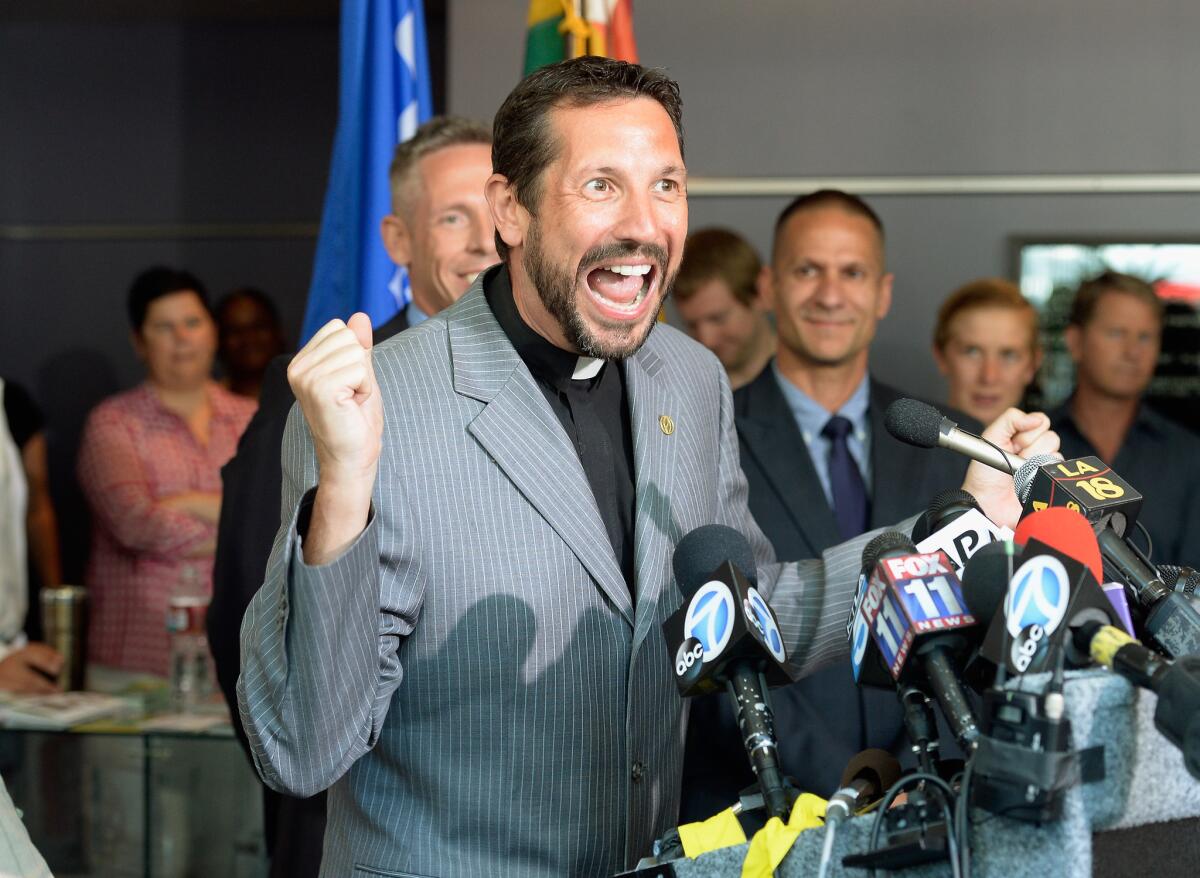The Prop. 8 ruling, in lay personâs terms

For people wondering why the U.S. Supreme Court refused to decide the issues in the appeal of Californiaâs Proposition 8 case (Hollingsworth vs. Perry), here is a summary in lay personâs terms.
1) Article III of the U.S. Constitution allows federal courts to hear only âcasesâ or âcontroversiesâ (in the legal sense), which is why federal courts are barred from issuing advisory opinions.
2) The Supreme Court has interpreted the words âcasesâ or âcontroversiesâ in Article III to require that every plaintiff in federal court, or every person appealing a federal court decision, must sustain a personal injury caused by the other side that can be helped by a favorable court decision.
DECISION: U.S. Supreme Court on Prop. 8
3) The Supreme Court has interpreted this âpersonal injuryâ requirement to prohibit all lawsuits (with one exception) in which the plaintiffâs only injury is that he or she is mad that the government is violating the law. In other words, as Justice Antonin Scalia explained in a 2007 case, the âpsychicâ injury one sustains by observing illegal conduct is not enough to satisfy federal jurisdictional requirements because such psychic injury is shared by everyone equally. The only exception to this rule is that on certain rare occasions, plaintiffs are allowed to sue in federal court when they allege a governmental violation of the separation of church and state. Hollingsworth had nothing to do with the separation of church and state.
4) The plaintiffs in the Proposition 8 case easily satisfied these Article III requirements. The same-sex partners were injured by the stateâs denial of their licenses to marry; that injury was caused by the state of California; and a federal court could redress that injury by requiring California to issue marriage licenses.
5) But â and this is where the problems start â neither the governor nor the attorney general of California defended Proposition 8 in federal court. They both agreed with the plaintiffs that Proposition 8 violated the equal protection clause. Had the state officials defended Proposition 8, there would be no jurisdictional problems.
VIDEO: U.S. Supreme Court ruling clears path for same-sex marriage in California
6) The federal trial court allowed the people who proposed and sponsored Proposition 8 as an amendment to the California Constitution to defend the case in court because the state refused to do so. But these proponents of Proposition 8 were not employees or agents of the state and had no official relationship with the state.
7) Because of this, and after the plaintiffs won in trial court, the appeals court asked the California Supreme Court whether, as a matter of state law, the plaintiffs had the right to defend the constitutionality of Proposition 8 in federal court and on appeal.
8) The state court said yes as a matter of state law. The court had no authority to decide the issue under federal law.
FULL COVERAGE: Prop. 8 and DOMA
9) It is one thing for a state to allow employees or agents of the state to defend its interests in federal court, something the Supreme Court has previously hinted would be permissible. But it is quite another for the state to allow normal citizens who do not work for the state to have that authority. The difference is that the interests of the people who proposed Proposition 8 are no different than the interests of any other citizen who believes that the constitutional amendment is valid. Allowing such a person (with no unique injury) to appeal an adverse federal court decision is roughly the same as saying any plaintiff can sue a state in federal court if he or she thinks a state law is invalid and is angry about it. And, as stated in No. 3 above, that is simply not allowed.
10) So, the people who appealed the Proposition 8 case had no interest in the case beyond their âpsychicâ wish to see the amendment upheld and thus did not suffer the requisite personal injury to satisfy the âcasesâ or âcontroversiesâ requirements of Article III, and the lawsuit had to be dismissed for lack of jurisdiction.
Eric J. Segall, a law professor at Georgia State University, is the author of âSupreme Myths: Why the Supreme Court Is Not a Court and Its Justices Are Not Judges.â Twitter: @espinsegall.
More to Read
A cure for the common opinion
Get thought-provoking perspectives with our weekly newsletter.
You may occasionally receive promotional content from the Los Angeles Times.









